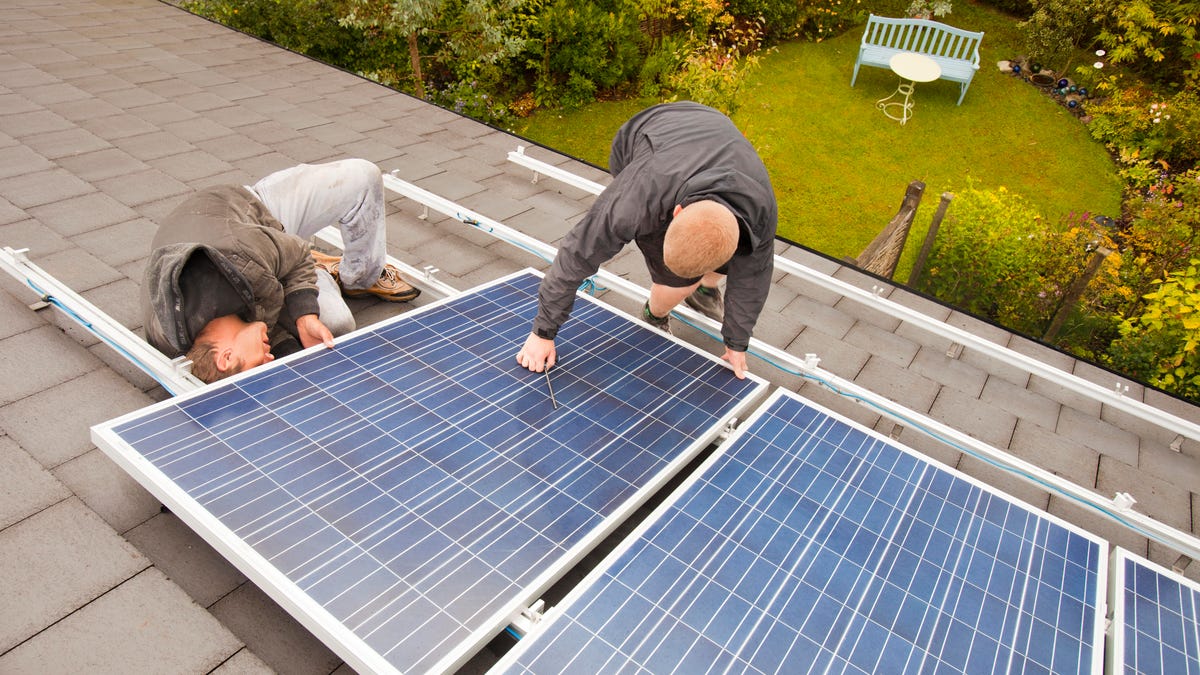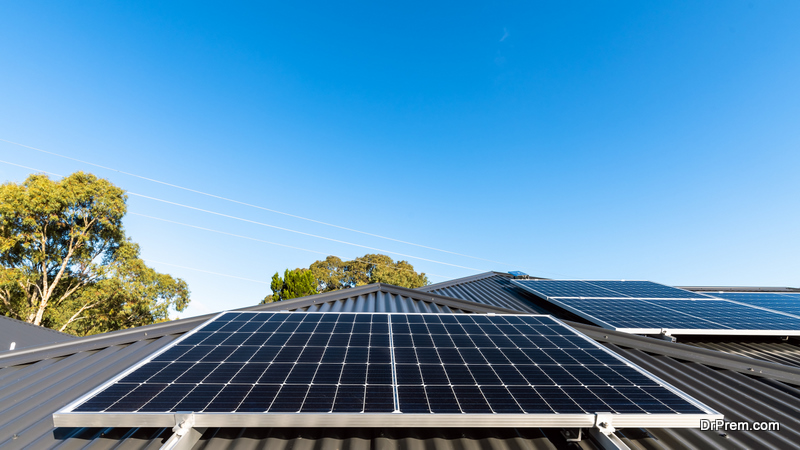You’ve been thinking about renovating your home for a while now, but you want to do it in an eco-friendly way. One upgrade you should seriously consider? Solar panels. We get it, the idea can seem daunting and expensive at first. But solar power is becoming more and more accessible, and the long-term savings and environmental benefits make it an upgrade that’s well worth looking into. In this article, we’ll walk you through everything you need to know to decide if solar is right for your next renovation, from costs and incentives to finding the right installer. We’ll also share ideas on how to seamlessly incorporate panels into your home’s design. If you’re looking to make your home improvement project greener, keep reading to learn how to harness the sun’s power!
The Benefits of Installing Solar Panels During Your Home Renovation
Lower Energy Bills
By harnessing the sun’s energy, solar panels can significantly lower your electricity costs. The average residential system can cut bills by 50-100% annually. That means major savings over the lifetime of your panels.
Increase Your Home’s Value
Solar panels are attractive to homebuyers and can increase your property value by 3-4% according to the U.S. Department of Energy. For an average home, that equates to $15,000-$30,000 in added value.
Reduce Your Carbon Footprint
The average home produces about 6 metric tons of carbon dioxide per year. By switching to solar, you can eliminate up to 60% of your home’s emissions and do your part to fight climate change.
Tax Incentives and Rebates
The federal solar tax credit allows you to deduct 26% of the cost of installing a residential solar system from your taxes. Many states and local utilities also offer additional rebates and incentives for going solar.
Energy Independence
With your solar power system, you can produce renewable energy and gain independence from the electric utility grid. That means stable energy costs and consistent power, even during outages.
Going solar during your renovation allows you to design the perfect system for your needs and budget. You’ll maximize energy production while keeping costs low by installing panels at the optimal angle and wiring them directly into your home. Make the switch and start enjoying the benefits of your eco-friendly power plant.
Key Factors to Consider When Adding Solar Panels to Your Home
Space Requirements
Solar panels require adequate space for installation and optimal sun exposure. For most homes, 10 to 20 panels are needed to power the whole house. Make sure you have enough unshaded roof space or ground space for the panels.
Cost
The upfront cost of a residential solar system can be significant, typically between $15,000 to $30,000. However, solar panels can drastically reduce your energy bills and provide tax incentives. Many homeowners take out loans to finance their solar panel installation. In the long run, you can recover your costs through energy bill savings and tax credits.
Energy Efficiency
To maximize the benefits of solar panels, make sure to make your home as energy-efficient as possible first. Improve insulation, seal, and caulk air leaks, and upgrade to Energy Star-rated appliances. The less energy your home consumes, the more you can rely on solar power.
Maintenance
Solar panels require little maintenance but still need occasional inspection and cleaning. Panels should be checked for damage or debris a few times a year. Over time, solar panels can become less efficient, losing around 0.5% of power production each year. Most solar panels come with 20- to 25-year warranties to ensure long-term performance.
With the right planning and consideration of these key factors, solar panels can be an eco-friendly and rewarding home upgrade. Lower energy bills, tax incentives, and a reduced carbon footprint—what’s not to like? Make the switch to solar and enjoy a brighter future powered by the sun.
Top Tips for Seamlessly Incorporating Solar Into Your Renovation
If you’re planning a home renovation, solar panels are a perfect eco-friendly addition. Here are some tips to seamlessly integrate solar into your renovation plans:
Consider solar early in the planning process
The sooner you decide to go solar, the better. Adding solar panels to a remodel means your contractor, architect, and electrician can ensure the necessary structural and electrical components are included in the plans. This avoids expensive changes later on to accommodate a solar system.
Choose high-efficiency panels
Today’s solar panels are more efficient than ever before, requiring less space to generate the same amount of power. High-efficiency panels, like monocrystalline panels, take up less roof space so you can still have an esthetically pleasing roofline.
Match your roofline and home style
If possible, choose a panel style (size, color) and layout that complements your home’s architecture. For sloped roofs, tilt the panels to match the pitch of the roof. For flat roofs, low-profile panels can be installed flush with the roof surface. Framing the panels to match the angles and lines of windows and trim also helps them blend in.
Consider a solar roof
If you need a full roof replacement, a solar roof integrates photovoltaic panels into roof shingles for a seamless look. While pricier, a solar roof maximizes power generation and requires no separate panels. Popular options include Tesla’s solar roof tiles and GAF Energy’s Timberline Solar shingles.
Adding solar to your renovation is a smart investment that will save energy and money for years to come. With some planning, solar panels can enhance your home’s appearance rather than detract from it. Talk to your renovation team and solar company to determine the best approach for your unique home.
Conclusion
So there you have it – solar panels are a great option for eco-friendly home upgrades. With solar power, you can reduce your environmental impact and energy costs at the same time. When planning your next renovation, be sure to get a solar assessment done and consider adding a solar system. The investment will pay off in the long run with lower utility bills and a lighter carbon footprint. Plus, solar increases your home’s value. It’s a win-win situation. The technology keeps improving too, so solar panels just keep getting more affordable and efficient. Don’t wait any longer – make the switch and let the sun power your home! You and the planet will be glad you did.



